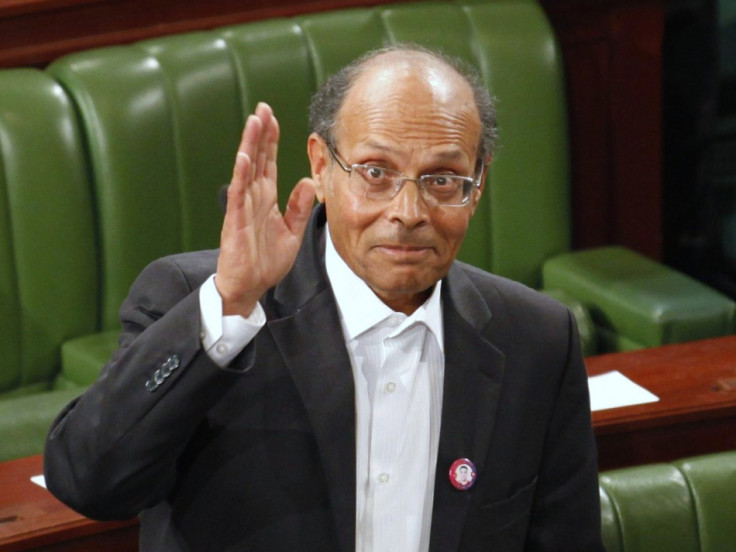Tunisia: Human Rights Activist Elected President

A long-serving human rights activist has been become president of Tunisia in the first democratic election since the country's revolution in January.
Moncef Marzouki, who for years struggled against dictator Zine El Abidine Ben Ali and was imprisoned in 1994, became interim president with 153 out of 217 votes in the newly elected Constituent Assembly.
"It's the greatest honour that anyone could dream of being elected by two-thirds of the vote," he said. "I will exert all my efforts to be worthy of this trust."
The 66-year-old doctor is set to appoint a prime minister from the moderate Islamist Ennahda Party, which won the elections six weeks ago. Under the new bylaws, strongly contested by the liberal and left-wing opposition, most of the power goes to the prime minister.
The bylaws also state that the president must be Muslim with Tunisian parents, over the age of 35 and not a dual citizen of another country.
Chokri Yaiche, of the Afek Tounes (Tunisian Horizons) Party, warned of the "lack of balance between the powers of the president and the prime minister".
Other representatives from the Progressive Democratic Party were concerned about the possible emergence of a "new dictatorship", in which all the powers would be in the hands of the prime minister.
Critics accused Marzouki of being a puppet of Ennahda, which won the Constituent Assembly elections with 89 seats. But many respect his secularist background and see him as a counterweight to the moderate Islamist party.
"I promise the Tunisian people that I will work for the country with all my strength," Marzouki said after the election. "I represent a country, a people, a revolution. Long live Tunisia.
"I say to those members who gave me their votes, thank you for your trust and, for those who did not vote for me, your message has been received. I know that you are going to hold me to account."
Secularist politicians say the Islamists will undermine Tunisia's liberal values and impose a strict moral code. The Ennahda Party denies it has any such intentions, saying instead that it will follow the moderate example of the Islamists who rule Turkey.
"It's an historic moment to have a first legitimate president of the country," Samir Dilou, a senior Ennahda official, told Reuters.
"No one can deny that this moment has just laid another stepping stone on the path towards real democracy in Tunisia and in the region."
Marzouki was jailed in 1994 after defying Ben Ali in a presidential election. He was released soon afterwards as a result of an international campaign to free him, but was forced to go into exile in France.
His attempts to return permanently to his homeland were always blocked by the authorities. Days after protests forced Ben Ali to flee on Jan. 14, Marzouki flew home from Paris and was greeting at Tunis-Carthage airport by cheering and singing followers.
© Copyright IBTimes 2025. All rights reserved.






















